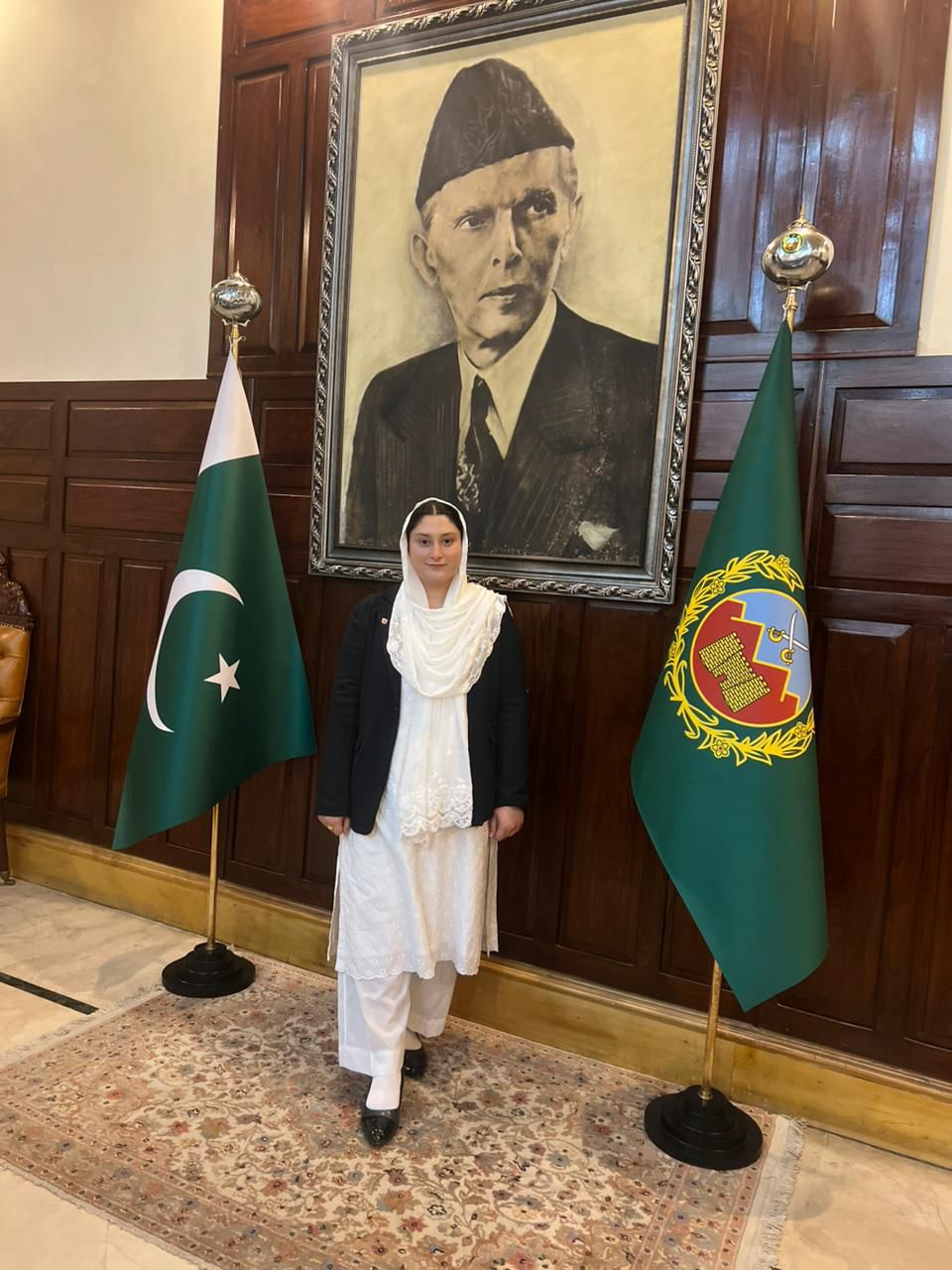Best Divorce & Separation Lawyers in Pakistan
Share your needs with us, get contacted by law firms.
Free. Takes 2 min.
Free Guide to Hiring a Family Lawyer
Or refine your search by selecting a city:
List of the best lawyers in Pakistan
Pakistan Divorce & Separation Legal Questions answered by Lawyers
Browse our 6 legal questions about Divorce & Separation in Pakistan and read the lawyer answers, or ask your own questions for free.
- Regarding divorce pakistan
- My husband wants to divorce me from Pakistan. He is in Italy, and I'm in the UK. He never came to England. I don't want to accept the divorce. What can I do?
-
Lawyer answer by MAH&CO.
Hello,Thank you for sharing your situation. Under Pakistani law, a husband can initiate divorce (Talaq) even if he is residing abroad. However, the process must comply with legal requirements, including sending a written notice to the Union Council and giving...
Read full answer - After the baby will born. And the parents get divorce. So, the baby all birth documents have still has their father name on it or not?
- Currently am pregnant. And my husband send me from United Kingdom, London to Pakistan and now he's not communicating with me and also not send me my maternity expenses. So, after the baby born. And if I want divorce from him. So, the baby all documents will not have his... Read more →
-
Lawyer answer by Jeelani Law Empire Karachi Pakistan
LEGAL CONSULTATION OFFER – FAMILY, DIVORCE & CHILD SUPPORTDear Madam,Thank you for reaching out regarding your situation. Based on the facts you shared, please find below the legal position and support we can offer:✅ Legal Position:Father’s Name on Baby’s Documents:As...
Read full answer - annulment of marriage
- can a marriage be annulled after rukhsati and nikah even if not consummated?
-
Lawyer answer by Iqbal International Law Services
First of all, there is no law of annulment in Muslim law. If you are talking about Christians, that is a different matter. However, after rukhsati, marriage cannot be annulled. After rukhsati, one can go for divorce.
Read full answer
About Divorce & Separation Law in Pakistan
Divorce and separation laws in Pakistan are governed by a mix of Islamic principles and statutory laws. The process of divorce in Pakistan varies depending on the religious communities. For Muslims, the primary legislation is based on the Muslim Family Laws Ordinance, 1961. The Article 42-B outlines the procedure for the notification of divorce to the Union Councils. Non-Muslim divorces are typically governed by the Divorce Act of 1869. Divorce is recognized under different forms, including Talaq (initiated by the husband), Khula (initiated by the wife), and Mubarat (mutual agreement).
Why You May Need a Lawyer
Engaging a lawyer in divorce and separation cases in Pakistan is crucial for several reasons. Legal professionals can help navigate the complex legal system, ensuring that all procedural requirements are met. Lawyers also provide advice on rights and obligations, particularly concerning maintenance, child custody, and division of property. Situations where disputes arise, such as agreement on terms of separation, child custody battles, or interpretation of legal notice periods, also necessitate the expertise of a lawyer.
Local Laws Overview
In Pakistan, divorce laws are particularly detailed. Some of the key aspects include:
- Talaq Process: A husband can pronounce divorce, but it must be followed by a notification to the Union Council, which starts the reconciliation process during a 90-day period.
- Khula: A wife who seeks divorce must approach a family court and show a valid reason for the marriage dissolution, after which the court can grant Khula.
- Maintenance and Child Custody: The father is generally responsible for the maintenance of children, but courts have the discretion to decide child custody based on the welfare of the child.
- Dowry and Property Distribution: Issues related to dowry can be contentious, and the division of property is often settled based on mutual settlement or court orders under family law.
Frequently Asked Questions
What is Talaq?
Talaq is a form of divorce initiated by the husband in Islamic law. It involves the pronouncement of the intention to divorce, followed by legal proceedings mandated by local laws.
How does Khula work?
Khula allows a woman to initiate divorce. It requires filing a petition with the family court, providing valid reasons for the request, and possibly returning the dower (mahr) to the husband.
What is the role of Union Councils in divorce?
In Pakistan, the Union Council is responsible for registering divorce notices, overseeing Tajdeed (reconciliation efforts), and ensuring compliance with legal procedures.
Can non-Muslims in Pakistan get divorced?
Yes, non-Muslims can get divorced in Pakistan under the Divorce Act of 1869, which outlines the procedure according to civil law.
What are the rights of women in divorce proceedings?
Women have the right to seek divorce through Khula, claim maintenance, and custody of minor children. They can also claim their Mehar, property rights, or dowry items as applicable.
How is child custody determined?
Child custody decisions are made based on the child's best interests, with considerations given to the welfare, age, and comfort of the child. Courts generally favor mothers for younger children.
What should be included in a Separation Agreement?
A separation agreement should cover spousal support, child custody, visitation rights, distribution of property, and any other mutual arrangements.
Is mediation required before a divorce can be granted?
Mediation or reconciliation efforts are often mandated as part of the procedural requirements, particularly by the Union Council, before the finalization of a divorce through Talaq.
Can divorce proceedings be contested?
Yes, either party can contest divorce proceedings, particularly disputes over maintenance, custody, or property distribution, which would then be resolved in family court.
What happens if one spouse does not agree to divorce?
If one spouse does not agree to divorce in cases like Khula, the matter is taken to court where the judge decides based on the merits of the case and prevailing laws.
Additional Resources
Several resources can be useful for people involved in divorce proceedings in Pakistan:
- Family Courts: These are specialized courts dealing with matrimonial disputes and can be approached for divorce, maintenance, and custody matters.
- Local Union Councils: The first line of contact for divorce registrations and overseeing the notification process.
- Lawyer Associations: Regional lawyer associations can provide referrals for specialized legal practitioners in family law.
- Women Aid Organizations: Various NGOs provide support for women seeking legal assistance in divorce cases, such as the Aurat Foundation and Panah.
Next Steps
If you are considering or currently involved in a divorce or separation in Pakistan, it is advisable to seek legal guidance early in the process. Here are the suggested steps:
- Consult a Lawyer: Meet with a qualified family law attorney to understand your rights and obligations.
- Gather Documentation: Collect all relevant documents, such as marriage certificates, financial statements, and any previous legal documents related to the marriage.
- Understand the Local Laws: Familiarize yourself with the specific divorce procedures applicable to your religious and community background.
- Consider Mediation: Explore mediation or reconciliation through Union Councils or private sessions if you're open to this approach.
- Legal Representation: Ensure you have adequate representation for court proceedings if disputes are involved.
Proactive engagement with legal resources can significantly influence the outcome and ease the burdens of legal proceedings in divorce and separation cases.
Lawzana helps you find the best lawyers and law firms in Pakistan through a curated and pre-screened list of qualified legal professionals. Our platform offers rankings and detailed profiles of attorneys and law firms, allowing you to compare based on practice areas, including Divorce & Separation, experience, and client feedback.
Each profile includes a description of the firm's areas of practice, client reviews, team members and partners, year of establishment, spoken languages, office locations, contact information, social media presence, and any published articles or resources. Most firms on our platform speak English and are experienced in both local and international legal matters.
Get a quote from top-rated law firms in Pakistan — quickly, securely, and without unnecessary hassle.
Disclaimer:
The information provided on this page is for general informational purposes only and does not constitute legal advice. While we strive to ensure the accuracy and relevance of the content, legal information may change over time, and interpretations of the law can vary. You should always consult with a qualified legal professional for advice specific to your situation.
We disclaim all liability for actions taken or not taken based on the content of this page. If you believe any information is incorrect or outdated, please contact us, and we will review and update it where appropriate.
Browse divorce & separation law firms by city in Pakistan
Refine your search by selecting a city.

















